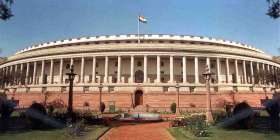For most of the post-1980 generation in India, Adil Shahryar is a name that they are not even aware of or ever heard but the question then is why did this name create such a stir in the Parliament and why did it become the Congress Vice President, Rahul Gandhi’s red faced moment in the Parliament.
With Sushma Swaraj hinting at the alleged quid pro quo by the then Congress Prime Minister in 1985, it is perhaps now time to raise some question and demand the hard truth. We all know about Union Carbide Chief, Warren Anderson’s much criticised release from Indian prison. Despite the deadly gas leakage from the company’s Bhopal Plant in December, 1984 that killed over 3000 overnight, rendered tens of thousands blind and induced birth defects in an entire generation, Mr Anderson was released from the Indian prison and lived a free man till his death last year.
I am sure many of you like me questioned the rationale, the thinking and the justification of this release. Being the CEO of Union Carbide, Anderson surely was the primary representative of the company and logically, morally and legally responsible for every action of the company. Residents of Bhopal even to this day are battling numerous health ailments as the direct impact of the deadly Methyl Isocyanate gas leakage. Yet why was Anderson released?
Perhaps a part of the answer lies in a pretty coincidence around the same time. Adil Shahryar, son of Jawaharlal Nehru and Indira Gandhi’s close associate Muhammed Yunus, who sentenced to 35 years of rigorous imprisonment in US found his sentence commuted by the Reagan Government. The New York Times dated August 15, 1985, stated, “Since taking office, President Reagan has commuted the sentences of 13 people who had been in prison for violations of Federal laws. One was a boyhood friend of Prime Minister Rajiv Gandhi of India, Adil Shahryar, who was serving 35 years for setting off a firebomb, fraud and other violations in Florida. Mr. Reagan signed the clemency papers June 11, the day Mr. Gandhi arrived in Washington for a visit with the President.”
A look at our Indian publications around that time also mentions that the Prime Minister, Rajiv Gandhi and his office had confirmed the release and mentioned something about the fact that they believed he was wrongly imprisoned.
So did India pay the price of releasing Anderson to ensure a Gandhi-family friend did not waste away in an American Prison? Was Anderson’s release a quid pro quo to get Adil Shahryar out of the bars? It is time the average Indian got this answer.





Leave a reply